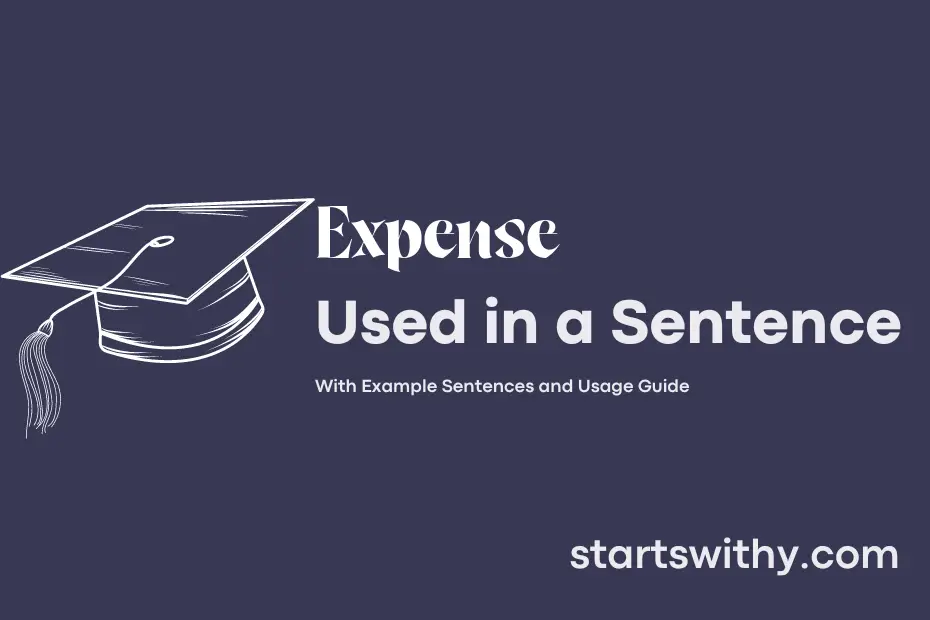Have you ever wondered about the true meaning of the word “expense”? In simple terms, an expense refers to the money spent or the cost incurred in order to obtain goods or services.
Expenses are a common part of our daily lives, from grocery shopping to paying utility bills. Understanding expenses is essential for managing personal finances effectively and making sound financial decisions.
7 Examples Of Expense Used In a Sentence For Kids
- Expense is the money we spend to buy things.
- We should not waste money on unnecessary expense.
- We should plan our expense wisely.
- Saving money helps us avoid unnecessary expense.
- It is important to know how much we are spending on expense.
- We should always try to reduce our expense.
- Smart shopping can help us save on our expense.
14 Sentences with Expense Examples
- Expenses such as textbooks and study materials can add up quickly.
- I always try to budget for my monthly expense on groceries and food.
- Finding a part-time job can help cover some of the living expenses.
- Saving money on transportation expenses by using public transport can be beneficial.
- It’s important to keep track of your daily expenses to avoid overspending.
- Hosting a potluck can be a great way to share the expense of a meal with friends.
- Splitting the expense of renting a textbook with a friend can save money.
- Investing in a good quality backpack can be a worthwhile expense to protect your laptop and books.
- Opting for a shared accommodation can help lower the monthly rent expense.
- Utilizing student discounts can help reduce the expense of shopping for clothes and accessories.
- Setting aside a portion of your income for unforeseen expenses is a smart financial decision.
- Avoiding unnecessary expenses such as eating out frequently can save a lot of money.
- Participating in campus events and utilizing student facilities can help reduce entertainment expenses.
- Planning ahead for major expenses like a college trip can help save money in the long run.
How To Use Expense in Sentences?
Expense is a noun that refers to the amount of money that is spent on something. To use expense in a sentence, you can follow these simple steps:
-
Identify where you want to use the word expense in your sentence. Is it the subject, object, or part of a description?
-
Choose a subject and a verb that will help convey your message clearly. For example, “John” (subject) “paid” (verb) “a high expense” (object).
-
Insert the word expense into your sentence in the appropriate place. You can say, “John incurred a significant expense while renovating his house.”
-
Make sure that the sentence makes sense and conveys the meaning you intend. Check for proper grammar and punctuation to ensure clarity.
-
Read your sentence out loud to see if it sounds right and if expense is used correctly in the context.
Remember, expense is used to indicate the cost of something, so be sure to use it in a context where spending money is involved. Practicing using expense in various sentences will help you become more comfortable with incorporating it into your everyday language.
Conclusion
In conclusion, sentences with “expense” illustrate the costs or sacrifices incurred in various contexts. Whether referring to personal finances, business operations, or moral dilemmas, these sentences highlight the trade-offs and implications of certain choices. By showcasing the impact on resources, relationships, or values, such sentences underscore the importance of careful consideration before making decisions that come at a cost.
Examining sentences with “expense” serves as a reminder to weigh the pros and cons of actions that may result in detriment or loss. They prompt reflection on the value of what is being sacrificed and the potential long-term consequences. Ultimately, these sentences emphasize the need for prudent judgment and strategic planning to minimize negative outcomes and maximize benefits in the face of expenses.



